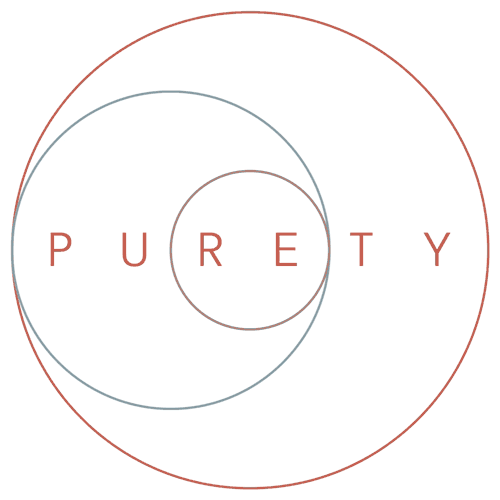Why You Should Avoid Benzoyl Peroxide in Skincare Products | Puretyclinicshop.com
When it comes to fighting acne, benzoyl peroxide is often the first ingredient that comes to mind. It’s a popular choice for many because it’s known to kill the bacteria that cause acne. However, benzoyl peroxide is not without its drawbacks. It can lead to skin irritation, dryness, and redness. Additionally, its bleaching properties can affect your hair, clothing, and towels. Results may take time, and it can increase your skin’s sensitivity to sunlight. Because of these reasons, many people turn to alternatives like salicylic acid or adapalene.
The Drawbacks of Benzoyl Peroxide
Benzoyl peroxide is effective at killing the bacteria that cause acne, but this process comes with several significant downsides:
Skin Irritation: One of the most common issues with benzoyl peroxide is skin irritation. Many people experience redness, itching, and a burning sensation when using this ingredient, especially those with sensitive skin. This irritation can sometimes be severe enough to cause discomfort and may deter consistent use.
Dryness and Peeling: Benzoyl peroxide can strip the skin of its natural oils, leading to excessive dryness and peeling. This can be particularly problematic in dry or cold climates, where the skin is already prone to dryness. The peeling can also make the skin look flaky and unhealthy.
Bleaching Effect: A notable downside of benzoyl peroxide is its bleaching properties. It can stain your towels, pillowcases, and clothing if it comes into contact with them. Additionally, if it touches your hair, it can cause lightening, which can be frustrating if you have darker hair or color-treated hair.
Sun Sensitivity: Products containing benzoyl peroxide can make your skin more sensitive to the sun, increasing the risk of sunburn and long-term sun damage. This means you need to be extra vigilant about applying sunscreen and avoiding prolonged sun exposure while using benzoyl peroxide.
Slow Results: While benzoyl peroxide is effective at killing acne-causing bacteria, it doesn’t always provide quick results. You need to use it consistently, and it can take several weeks to see significant improvement in your skin. This can be discouraging if you’re looking for a fast solution to your acne problems.
Given these drawbacks, it’s worth considering other options that might be gentler on your skin while still effectively treating acne.
Salicylic Acid: A Gentler Alternative
Salicylic acid is a beta-hydroxy acid (BHA) that is oil-soluble, making it particularly effective for treating acne. Here’s why it’s a great alternative to benzoyl peroxide:
Gentle Exfoliation: Salicylic acid works by exfoliating the outer layer of the skin, helping to unclog pores and prevent the formation of blackheads and whiteheads. This gentle exfoliation helps to keep the skin clear without causing irritation.
Penetrates Oil: Because it’s oil-soluble, salicylic acid can penetrate deep into the pores, dissolving the excess sebum and debris that can lead to acne. This makes it particularly effective for those with oily skin.
Anti-inflammatory Properties: Salicylic acid has anti-inflammatory properties that help to reduce the redness and swelling associated with acne. This can make pimples less noticeable and more manageable.
Improves Skin Texture: Regular use of salicylic acid can improve the overall texture of your skin, making it smoother and more even. It can also gradually diminish the visibility of acne scars.
Adapalene: The Modern Retinoid
Adapalene is a synthetic retinoid that has been shown to be effective in treating acne. It’s available over-the-counter and offers several benefits:
Reduces Inflammation: Adapalene helps to reduce inflammation, making it effective in treating red, swollen acne lesions. This can help to make your acne less noticeable and reduce the discomfort associated with it.
Prevents Acne Formation: By promoting cell turnover and preventing the clogging of pores, adapalene helps to prevent new acne from forming. This can help to keep your skin clear over the long term.
Improves Skin Texture: Over time, adapalene can help to improve skin texture and tone, reducing the appearance of acne scars and hyperpigmentation. This can make your skin look healthier and more even.
Less Irritating: Compared to other retinoids, adapalene is generally less irritating and more suitable for sensitive skin. This makes it a good option for those who want the benefits of a retinoid without the harsh side effects.
Choosing the Right Product for Your Skin
Ultimately, the best choice depends on your skin type, the severity of your acne, and your individual preferences. It’s always advisable to patch test new products and consult a dermatologist, especially if you have persistent or severe acne.
For those looking to avoid the potential downsides of benzoyl peroxide, salicylic acid and adapalene are excellent alternatives. They offer effective acne treatment with fewer side effects, making them a preferred choice for many.
Skin Patch Test
Recommended Products
If you’re looking for high-quality skincare products that avoid the harsh effects of benzoyl peroxide, consider trying Phyto-C skincare products. Phyto-C offers a range of products that are designed to be gentle yet effective, catering to various skin concerns. Their formulations focus on using natural and scientifically backed ingredients to promote healthy, radiant skin.
Explore their products at Phyto-C and find the perfect solution for your skincare needs. Whether you’re dealing with acne, looking to improve skin texture, or simply want to maintain a healthy complexion, Phyto-C has something to offer. Click this link to learn more: Skin Care – PuretyClinicShop.
In conclusion, while benzoyl peroxide can be effective in treating acne, it’s not without its downsides. Alternatives like salicylic acid and adapalene provide effective treatment options with fewer side effects. By choosing the right products and consulting with a dermatologist, you can achieve clear, healthy skin without the harsh effects of benzoyl peroxide.







